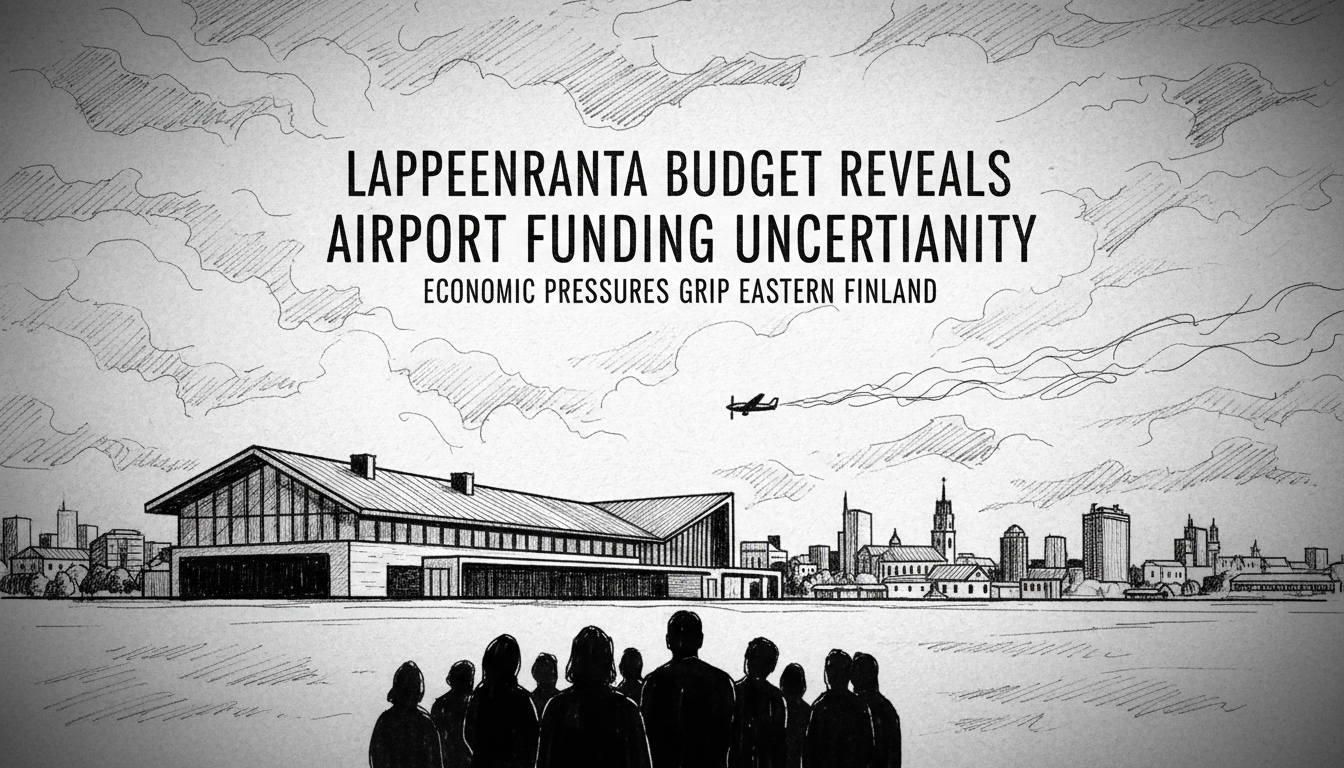Lappeenranta has prepared for challenging economic times ahead, but the distant future raises concerns. The city's upcoming budget presents a grimmer picture than previous years, with the annual surplus expected to fall to approximately 24 million euros. This figure sits six million below the city's target threshold.
The declining surplus stems primarily from reduced tax revenues. The global economic situation affects corporate taxes with delayed impact, while the forest industry's recent downturn now shows in municipal finances. Major employers like Kaukas cannot generate the same tax revenue as in previous years.
City Manager Tuomo Sallinen noted in the budget announcement that overall tax funding for next year remains roughly at current forecast levels but decreases by nearly five million euros compared to this year's budget. Deputy City Manager Jari Iskanius emphasized during the budget press conference that Lappeenranta has maintained controlled spending levels. The anticipated drop in corporate tax revenues has been expected for several years, allowing for preparation.
The budget reveals ongoing uncertainty about airport funding, a surprising element that remains unresolved. This comes as Finnish regional airports face increasing pressure to demonstrate economic viability amid changing travel patterns and environmental concerns.
What does this budget mean for Lappeenranta residents and businesses? The reduced surplus may limit future infrastructure projects and public services if the trend continues. Municipal budgets across Finland face similar pressures as global economic shifts affect traditionally stable industries.
Eastern Finland's economic landscape has transformed significantly in recent decades. The region once relied heavily on forest industry and border trade with Russia, both now facing structural challenges. Lappeenranta's situation reflects broader trends affecting smaller Finnish cities competing for investment and talent.
International readers should understand that Finnish municipalities have substantial autonomy in taxation and service provision. Budget shortfalls directly impact local schools, healthcare, and infrastructure. The airport funding question highlights how regional transportation networks face scrutiny during economic tightening.
The city's approach shows prudent financial management by anticipating revenue declines rather than reacting to crises. Yet the unresolved airport funding indicates difficult decisions ahead about regional development priorities versus fiscal responsibility.

